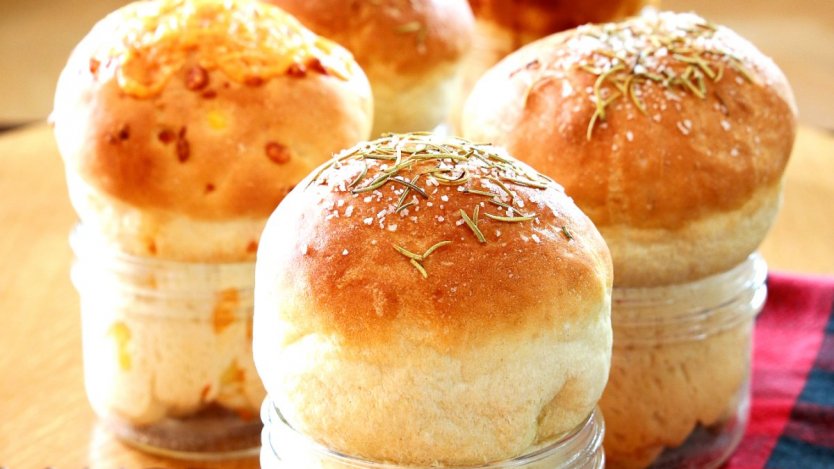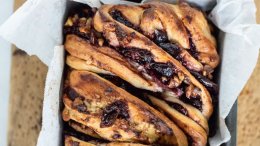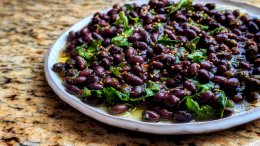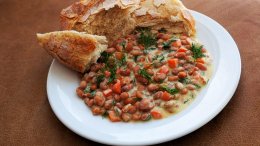Baking mini bread loaves in mason jars? If this isn't the cutest thing since Baby Yoda, we don't know what is!
This approachable homemade bread recipe is plucked from the pages of The Krause Berry Farms Cookbook: Sweet and Savoury Recipes from the Fraser Valley's Famous Farm and Bakery. Written by the farm and bakery's co-owner Sandee Krause, this cookbook is chock full of comforting recipes and heartwarming anecdotes.
"Knowing how I like to make individualized foods with a personal touch, Pauline came up with the idea to serve this light and airy bread, with delicious pockets of cheese, in these cute and small jars. Everyone loves them fresh and warm right out of the oven," writes Sandee Krause in the introduction to this recipe in The Krause Berry Farms Cookbook.
Potato slurry
1 medium russet potato, peeled and cut into 8 pieces
¼–⅓ cup water
Place the potatoes in a small pot and cover with the water. Put the lid on and bring to a boil on high heat, then turn down the heat and keep at a low boil for 15 minutes.
Break up any pieces with a potato masher and cook on low heat for another
5 minutes. It should be a smooth consistency similar to applesauce. Potatoes vary in size, so if the slurry doesn’t measure ½–⅔ cup, you can add a little water to make up the difference.
Let cool for 10 minutes before using.
Store in an airtight container in the refrigerator for up to 1 day. Stir well to restore its smooth consistency before using.
Cheesy potato bread
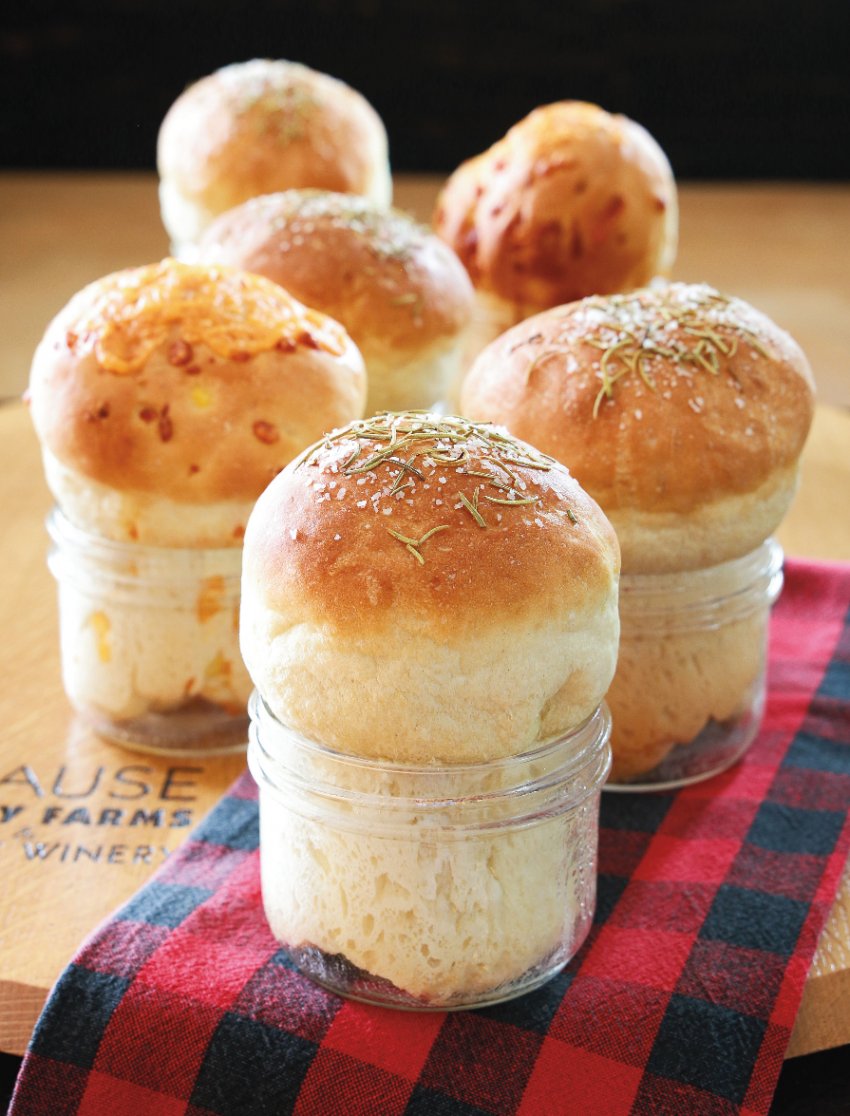
¼ cup + 2 tsp granulated sugar, divided
1½ cup warm (approximately 110°F) water, divided
1 Tbsp active dry yeast
1½ Tbsp melted salted butter 1 large egg, at room
temperature
½ cup Potato Slurry (page 279), at room temperature
5½ cups all-purpose flour 1½ tsp table salt
2 cups shredded cheddar, divided
Flaked sea salt, for garnish (optional)
Rosemary, for garnish (optional)
Stir 2 tsp of the sugar into ½ cup of the warm water, followed by the yeast. Set the yeast mixture aside and let it proof for approximately 10 minutes. The yeast will bubble and smell yeasty.
In a stand mixer fitted with the dough hook, mix the remaining 1 cup of warm water, butter, and egg for 1 minute on low speed until just combined. Add the remaining ¼ cup sugar, potato slurry, and salt, then the proofed yeast mixture and mix for another couple of seconds on low speed until just incorporated.
With the mixer still running on low speed, slowly add the flour and salt to the yeast mixture until fully incorporated, approximately 5 minutes. Turn the mixer speed to medium-high and beat the mixture for approximately 3 minutes. Your dough should be thick and elastic. With the mixer still running on medium speed, add 1 cup cheese a little at a time; as the dough gets drier, it will form into a ball.
Loosely cover the dough with a clean tea towel or plastic wrap and place in a warm, draft-free place to proof 45 minutes–1 hour. The dough should double in size before you put it into jars.
Grease or spray twelve 1-cup wide-mouth heatproof glass jars with non-stick cooking spray or olive oil and dust with flour.
Using your hands, divide the dough into equal portions and place into the pre- pared jars. Wet your fingers and use them to smooth the top of the loaves. Loosely cover the jars with the tea towel or plastic wrap and place in a warm, draft-free place to proof. It is important not to overproof the bread. Just let it rise until the mixture is approximately double in size (20–30 minutes, depending on your room tempera- ture). Watch it carefully and don’t let it rise above your jar. It should just crest the top.
Preheat your oven to 350°F.
Bake until golden, 20–25 minutes. If the crust is browning too quickly, you can tent it with foil and continue baking until done. The bread is finished baking when it’s golden and has an internal temperature of 210°F–220°F. Use a probe thermometer to check the temperature.
Remove the bread from the oven and sprinkle the remaining 1 cup cheese evenly over the loaves. Return to the oven until the cheese is melted, approxi- mately 5 minutes.
Remove the jars from the oven and let cool for 3–5 minutes before removing and transferring the bread to a cooling rack.
Wrap the loaves individually in plastic wrap stored in the refrigerator for up to 3 days or in the freezer for up to 4 months.
(Author's note: You can omit the cheese for plain potato bread, if you prefer. This recipe will also make two 5 × 9-inch loaves or 12 buns.)
- Yield:
- Yields 12 buns

